Notebook
-
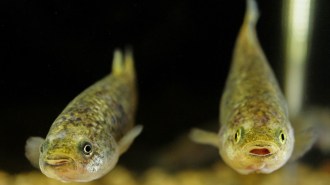 Animals
AnimalsAfter eons of isolation, these desert fish flub social cues
Pahrump poolfish flunked a fear test, but maybe they’re scared of other things.
By Susan Milius -
 Particle Physics
Particle Physics50 years ago, physicists got a whiff of what glues together protons
In 1972, particle smashups hinted at the gluon, which we now know not only holds together the innards of the proton, but also makes up more than a third of its mass.
-
 Anthropology
AnthropologyHow mythology could help demystify dog domestication
The path that dog myths took around the world closely parallels that of dog domestication, a new study finds.
-
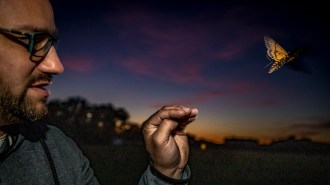 Animals
AnimalsHow death’s-head hawkmoths manage to fly straight for miles in the dark
By tailing death’s-head hawkmoths in an airplane, scientists have found that the nocturnal insects appear to navigate using an internal compass.
By Anil Oza -
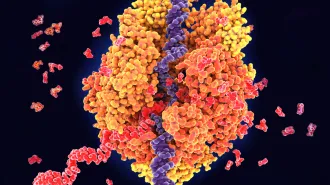 Tech
Tech50 years ago, genes eluded electron microscopes
In the 1970s, scientists dreamed of seeing genes under the microscope. Fifty years later, powerful new tools are helping to make that dream come true.
By Nikk Ogasa -
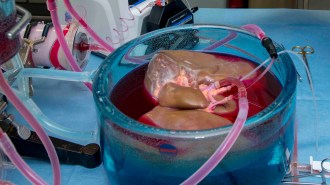 Health & Medicine
Health & Medicine50 years ago, scientists hoped freezing donor organs would boost transplants
In the 1970s, biologists hoped to freeze organs so more could last long enough to be transplanted. Scientists are now starting to manage this feat.
By Asa Stahl -
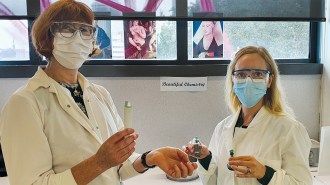 Chemistry
ChemistryThese researchers are unlocking Renaissance beauty secrets
An art historian has teamed up with chemists to uncover the science behind cosmetics used around 500 years ago.
-
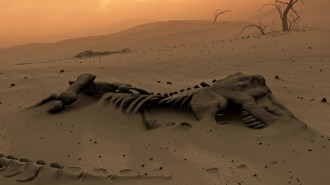 Paleontology
Paleontology50 years ago, the dinosaurs’ demise was still a mystery
In 1972, scientists blamed dinosaur biology for the reptiles’ demise. Years later, researchers ID’d the real killer: an apocalyptic asteroid.
-
 Earth
Earth50 years ago, a new theory of Earth’s core began solidifying
In 1972, scientists proposed that Earth’s core formed as the planet came together. Fifty years later, that theory is generally accepted, though many mysteries about the core remain.
By Nikk Ogasa -
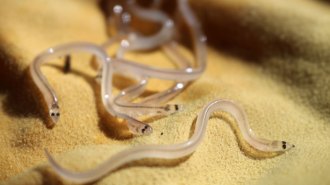 Animals
Animals50 years ago, eels’ navigation skills electrified scientists
Excerpt from the June 24, 1972 issue of Science News
-
 Space
Space50 years ago, the United States and Soviet Union joined forces for science
In 1972, U.S. and Soviet leaders agreed to work together on science. Now, Russia’s war in Ukraine is straining that decades-long partnership.
-
 Space
Space50 years ago, scientists had hints of a planet beyond Pluto
In 1972, calculations from Halley’s comet offered evidence of another planet. Today’s astronomers are still searching for a Planet Nine.